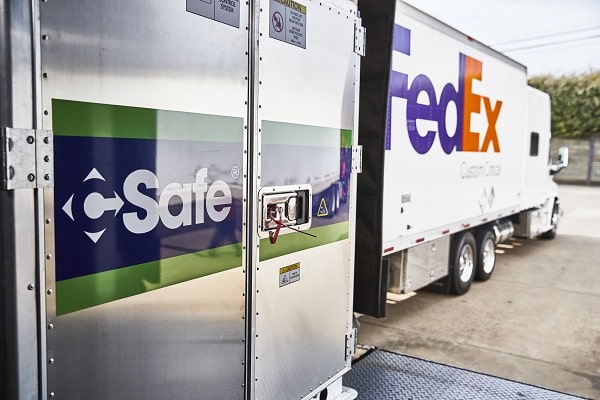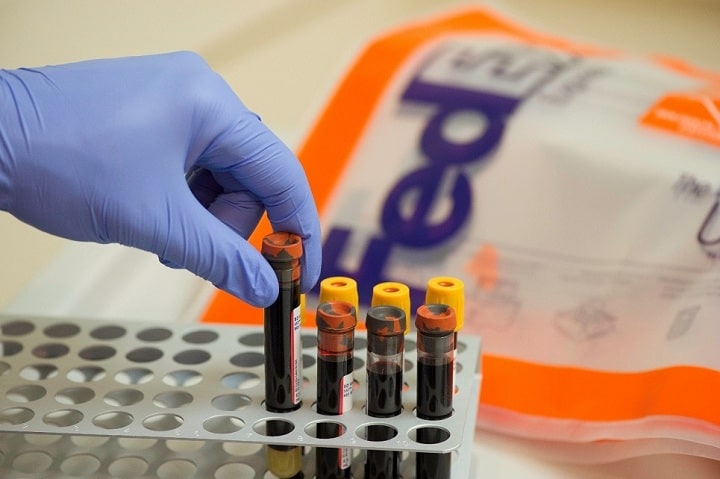As Asia’s healthcare systems mature, demand for the latest bio-pharmaceutical medicines is soaring. Most of these medicines are highly sensitive to temperature, meaning reliable cold chain services are crucial for effectively deploying biopharma across the region.
And the need for these services is growing rapidly. With rising incomes and an improving reimbursement landscape, patients increasingly have the means to afford the newest and most effective bio-pharmaceuticals. Meanwhile, regulators are streamlining their approvals processes to ensure that novel bio-pharmaceuticals and biosimilars are brought to market more quickly than before.
Healthcare industry executives are generally optimistic that these trends will continue. In a survey by the Economist Intelligence Unit, nine in ten respondents expected multinational manufacturers with new or specialized pharma products to introduce them in Asia over the next five years.1 While bio-pharmaceutical treatment rates in Asia are still relatively low compared to the United States and Europe, the gap will undoubtedly narrow over time.
Many of the most cutting-edge bio-pharmaceuticals, from the newest monoclonal antibodies to the emerging generation of cell and gene therapies, will come first to the region’s most mature healthcare markets, such as Japan, Singapore, Australia and South Korea. These same markets may also prove receptive to biosimilars, particularly as growing aging populations and chronic diseases put healthcare budgets under pressure, creating demand for low-cost alternatives.
Most industry observers also expect that biosimilars consumption will take off in emerging markets, such as China and India. In China, the biosimilars market is expected to quadruple in size from $2 billion in 2018 to $8 billion in 2025, according to a report by McKinsey & Company.2 The India market will experience a similar boom, growing from $400 million to $1.4 billion over the same time period.
 An emerging hotbed for advanced manufacturing
An emerging hotbed for advanced manufacturing
In addition to becoming hubs of bio-pharmaceutical consumption, some Asian countries are becoming hubs for advanced manufacturing as well. Both Western multinationals and regional players already have large manufacturing capacity in the region, and more facilities are being built every year, resulting in a greater load on the region’s pharmaceutical cold chain.
One major production hub is Singapore. The city-state offers a balanced mix of socio-political stability, skilled labor, infrastructure, regulatory leadership and research excellence to support bio-pharmaceutical manufacturing. Many of the world’s top biotech firms, such as Amgen and AbbVie, operate major production sites in the city-state. The same is true for regional leaders such as WuXi Biologics, which chose Singapore as the site for its tenth manufacturing facility last year.3
South Korea is fast becoming a major production hub too. The country is home to Samsung Biologics, which recently became the world’s largest contract manufacturer of bio-pharmaceuticals after completing a $759 million plant outside of Seoul.4 Meanwhile, Japanese firms are moving aggressively into the cell therapy space, suggesting the country will accelerate production growth in cell biopharma in the future.5
China is also gaining attention as an emerging hub for bio-pharmaceutical manufacturing. While still a relatively small player in the global context, many manufacturers are building local facilities to capture massive opportunities in the domestic market. Some also see China as a destination for contract manufacturing of biologics and biosimilars—roughly 85% of local producers forecast to export biologics to Western markets in the next 5 years.6
A changing landscape for clinical trials
Matured markets like Japan, South Korea, Taiwan, Australia and Singapore have long played an important role in bio-pharmaceutical R&D. For decades, researchers in these countries have participated actively in global clinical trials. In recent years, many are starting to focus more on trials geared specifically toward Asian populations. Some countries require that new therapies are tested locally on patients before commercial launch.
Cell and gene therapies are on the rise in the region’s more developed markets, particularly as countries like Japan and Australia make progress towards approvals and reimbursement for the emerging generation of CAR-T therapies.7 The CAR-T and other cell therapies have a shorter shelf life and require more stringent temperature controls than other biologics, making reliable and close loop cold chain services all the more vital for quality-control.
Another major shift is China’s rapid rise as a drug development hub for bio-pharmaceuticals. The country already holds a leading position in the global cancer cell therapy pipeline, with 305 of 1,011 active agents under development.8 Foreign pharmaceutical companies are projected to increase their R&D spend in the country to $29.3 billion in 2021.9
Implications for cold chain logistics
With rapid growth in Asia’s bio-pharmaceutical cold chain, it is critical for – companies and contract research organizations to select reliable logistics partners. To find the right logistics provider, ask yourself these questions:
• Do they have the necessary infrastructure to ensure shipment integrity at any temperature range and to any location?
• Can they offer the convenience of a one-stop shop with a full range of solutions for freight and parcel shipments at all levels of temperature control?
• Do they deliver high-performing, innovative packaging technologies and services, giving you confidence that product integrity is maintained during transit?
• Are they strong in regulatory compliance to help you meet GDP (Good Distribution Practice)?
As regulators across Asia are putting greater focus on bio-pharmaceutical logistics, complying with country-level requirements will be especially important. Logistics providers must be sure to follow Standard Operating Procedures, including thermal mapping, management reviews,
corrective and preventative actions, temperature documentation, deviation reporting, and proactive contingency interventions. It is crucial that they employ trained personnel who can process monitoring, controls and audits.
Look for logistics providers that are investing in infrastructure and technologies to support these needs. FedEx, for example, is building new cold chain centers next to airport runways to help guarantee temperature integrity on the pharmaceutical cold chain. As a specialist healthcare logistics provider, FedEx offers innovative packaging solutions, such as the new MedPak VIoC, a high-performance reusable thermal packaging that was launched in Asia earlier this year. In addition, FedEx offers reliable tracking tools like the SenseAware system to ensure continuous visibility through monitoring of temperature, humidity, light exposure, shock events and other environmental factors that can impact bio-pharmaceutical shipments.
With the healthcare demands of Asia-Pacific evolving as rapidly as the region itself, bi-opharma companies are entering an era of greater possibilities. Staying on top of tech breakthroughs and consistently leading in product innovation will continue to provide a winning formula. However, exploiting the cutting-edge capabilities of your logistics partner means leveraging an expert network that can strengthen your own.
Reference
1 Making the most of opportunity: Pharmaceutical strategy in Asia, an Economist Intelligence Unit report
2 What’s next for biosimilars in emerging markets, McKinsey & Company
3 WuXi Biologics to invest S$80 million to establish a biologics manufacturing facility in Singapore, WuXi Biologics
4 Samsung BioLogics claims contract biopharma crown, Nikkei Asian Review
5 Japanese firms push into cell therapy, Chemical & Engineering News
6 China can be ignored no longer: long-term biopharmaceutical opportunities based on near-term demonstrated growth, BioProcess International
7 Cell therapy in the Asia Pacific — solution to the cancer challenge, KPMG
8 The global pipeline of cell therapies for cancer, nature reviews drug discovery
9 Demand for more drugs in Asia drives friendly environment for clinical trials, Pacific Bridge Medical




















